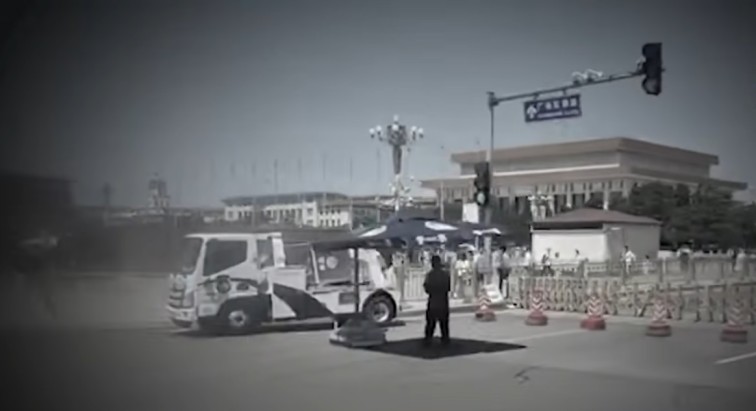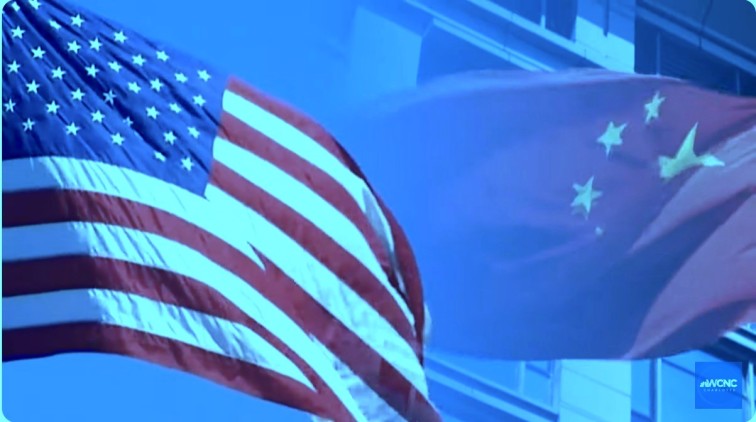For decades, the CCP has sought to expand its influence in Central American nations. (Photo by Hector Vivas/Getty Images)
[People News] On September 4, U.S. Secretary of State Rubio announced that the United States will impose visa restrictions on certain Central American nationals because they have “deliberately acted on behalf of the Chinese Communist Party (CCP) in Central American countries” and knowingly directed, authorized, funded, strongly supported, or engaged in activities undermining the rule of law in the region.
According to the U.S. State Department, Central American nationals who deliberately collaborate with the CCP and destabilize the Western Hemisphere may continue to face U.S. accountability. Their immediate family members will also be ineligible to enter the United States.
Central America, often referred to as America’s “backyard,” includes eight countries: Belize, Guatemala, El Salvador, Honduras, Nicaragua, Costa Rica, Panama, and the Dominican Republic.
For decades, the CCP has sought to expand its influence in these nations, cultivating ties through “trade and infrastructure projects.” By 2013, this was branded as the “Belt and Road Initiative.” In December 2015, the Asian Infrastructure Investment Bank (AIIB) was established to finance such projects. From Peru’s Chancay Port to the Panama Canal, CCP involvement is evident—especially in the Panama Canal, which is nearly under CCP control. Though presented as assistance for developing countries, these efforts are in fact about extending Beijing’s political reach and infiltration.
A report released in August 2024 by the “World Chinese Entrepreneurs Alliance” stated that Latin America (regions south of the U.S., including Mexico, Central America, the Caribbean, and South America) has become the CCP’s second-largest overseas investment destination. Investments surged from $12 billion in 2000 to $315 billion in 2020—a 26-fold increase.
In the past 20 years, the CCP has launched or completed 138 infrastructure projects in Latin America worth more than $94 billion. Trade between China and Latin America jumped from $18 billion in 2002 to nearly $449 billion in 2021—about 25 times higher. Over 2,700 Chinese companies now operate in the region. By investing in ports, energy, telecommunications, and other strategic infrastructure, as well as providing loans and “cooperation packages,” the CCP seeks to control key facilities, access sensitive data, and exert political influence—posing potential threats to security across the Americas.
Between 2007 and 2023, under CCP pressure, five Central American countries—including the Dominican Republic and Honduras—cut diplomatic ties with the Republic of China (Taiwan) and switched allegiance to Beijing.
The U.S. is well aware of the CCP’s motives in buying off politicians and pouring in money. Since President Trump’s return to the White House in January, he has emphasized that U.S. diplomacy will “return to the Western Hemisphere,” prioritizing the Americas.
In February, Secretary of State Rubio’s first overseas trip was to Panama, El Salvador, Costa Rica, Guatemala, and the Dominican Republic. The State Department openly stated that one of his goals was “to counter CCP influence.”
Before the latest visa restriction policy was announced—banning Central Americans who act on behalf of the CCP (along with their immediate family) from entering the U.S.—Rubio had just completed visits to Mexico and Ecuador. This was his fourth trip to the Western Hemisphere since taking office, aimed at further strengthening U.S. influence.
Neither Rubio nor the State Department cited specific cases when unveiling the new policy.
However, media reports on July 11 noted that the U.S. revoked the visa of Vanessa Castro, Deputy Speaker of Costa Rica’s Congress and a member of the Social Christian Unity Party (PUSC). Castro confirmed the revocation herself.
She said she was directly notified by the U.S. Embassy in Costa Rica, which informed her it had received intelligence about her alleged connections with CCP members. Castro denied having such ties.
Although the CCP repeatedly insists it “does not interfere in other countries’ internal affairs,” Beijing reacted furiously to the new U.S. visa restrictions. In a statement to Newsweek, the Chinese Embassy in Washington lashed out, accusing the U.S. of “deliberately sowing discord between China and Latin American and Caribbean nations,” calling it “baseless accusations and slander.”
Why is the CCP so enraged over U.S. domestic policy? It exposes Beijing’s insecurity and fear. The CCP knows its global infiltration and influence are being recognized by more and more countries, and its reach is steadily weakening.
Mexico’s President Sheinbaum has even said she is considering imposing new tariffs on China. Earlier, in May this year, Panama formally withdrew from the Belt and Road Initiative. Meanwhile, Hong Kong tycoon Li Ka-shing’s CK Hutchison Holdings announced plans to sell all 43 of its global port assets to a U.S. investment company.











News magazine bootstrap themes!
I like this themes, fast loading and look profesional
Thank you Carlos!
You're welcome!
Please support me with give positive rating!
Yes Sure!